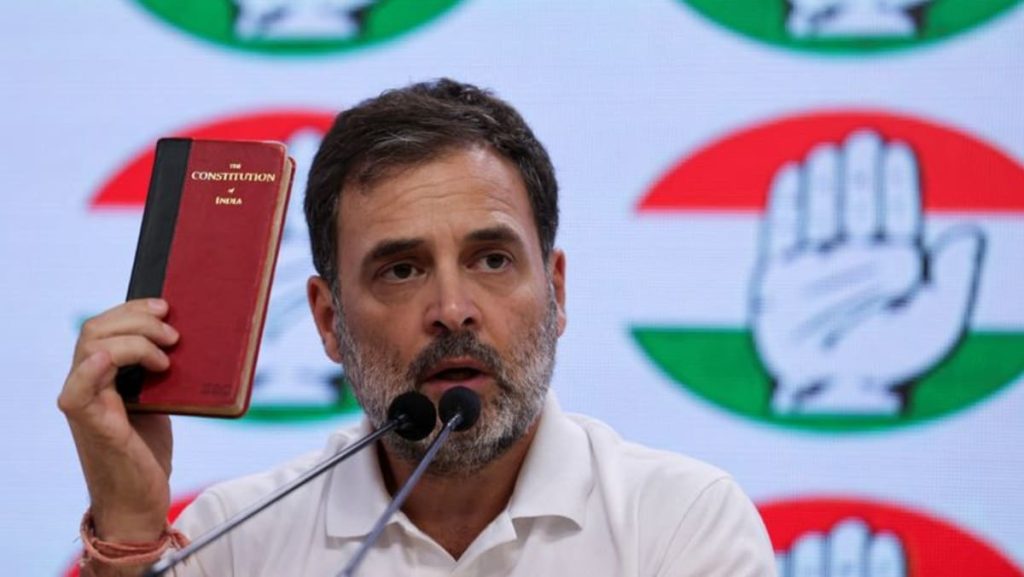Rahul Gandhi, the chief rival of Prime Minister Narendra Modi, has been nominated to lead India’s opposition in parliament following a successful election result that saw his Congress party nearly double its parliamentary numbers. Modi will be sworn into office for a third term this weekend after the election deprived his ruling Bharatiya Janata Party (BJP) of a majority, forcing it to rely on coalition allies to govern. Gandhi’s nomination as the leader of the opposition comes after a meeting of the Congress leadership on Saturday where a resolution was passed unanimously recommending his election.
Gandhi’s nomination as the official opposition leader comes after nearly a decade of vacancy in the position, as Congress had failed to reach the 10 per cent threshold required for the leader to be recognized. Despite initial expectations and exit polls predicting a different outcome, Gandhi’s leadership helped Congress achieve its best result since Modi came into power. With the support of a Congress-led opposition alliance, Gandhi is expected to officially become the opposition leader when the new parliament sits, according to local media reports.
Rahul Gandhi comes from a political dynasty that has had a significant impact on Indian politics for decades. As the son, grandson, and great-grandson of former prime ministers, including independence leader Jawaharlal Nehru, Gandhi is deeply rooted in Indian political history. If elected as the official opposition leader, Gandhi will play a prominent role in holding the government accountable and providing alternative policies and perspectives in the parliament.
The Congress party’s decision to nominate Gandhi as the leader of the opposition reaffirms his position as a key figure in Indian politics, despite facing challenges in previous election results. The unanimous support for Gandhi’s leadership within the party indicates a unified front that is ready to challenge the ruling BJP and support him in his new role. Gandhi’s leadership will be crucial in shaping the future of the opposition and presenting a strong alternative to Modi’s government.
Gandhi’s nomination and impending election as the leader of the opposition mark a significant turning point in Indian politics, with the Congress party making a strong comeback under his leadership. His family’s legacy and political experience will likely play a key role in shaping his leadership style and approach as the opposition leader. As India prepares for a new parliamentary session, Gandhi’s leadership will be closely watched as he navigates the challenges and opportunities of leading the opposition in a politically charged environment.
Overall, Rahul Gandhi’s nomination as the leader of the opposition in India’s parliament signals a new chapter in the country’s political landscape. With Modi’s coalition government facing challenges from a revitalized Congress party under Gandhi’s leadership, the upcoming parliamentary sessions promise to be dynamic and full of intrigue as the opposition seeks to hold the government accountable and present alternative policies for the future of India. Gandhi’s journey from being an underdog in the political arena to becoming the official opposition leader reflects the resilience and adaptability of Indian democracy in the face of changing political dynamics.


